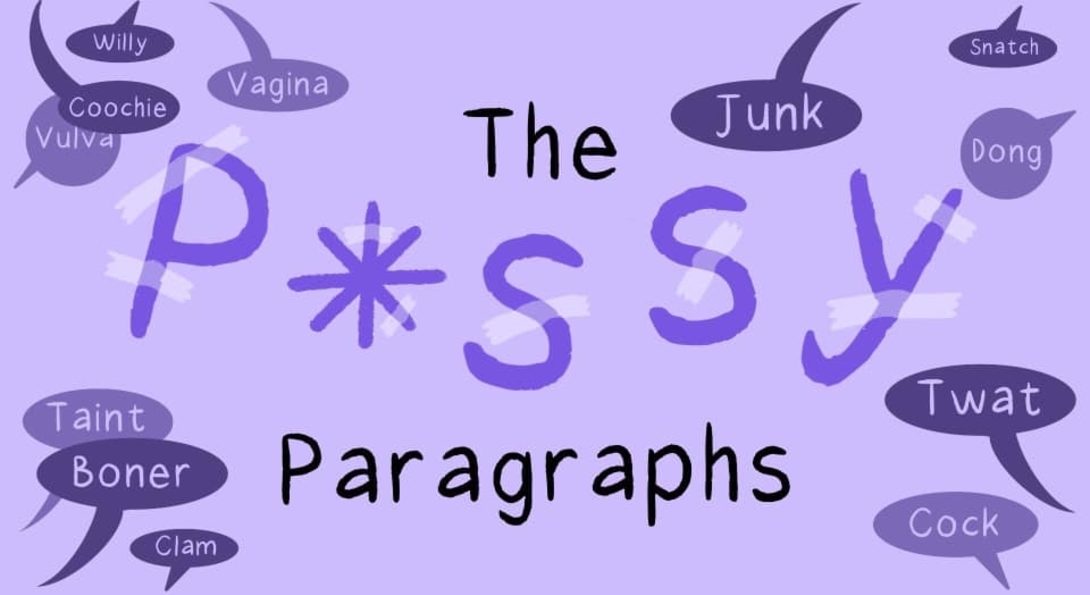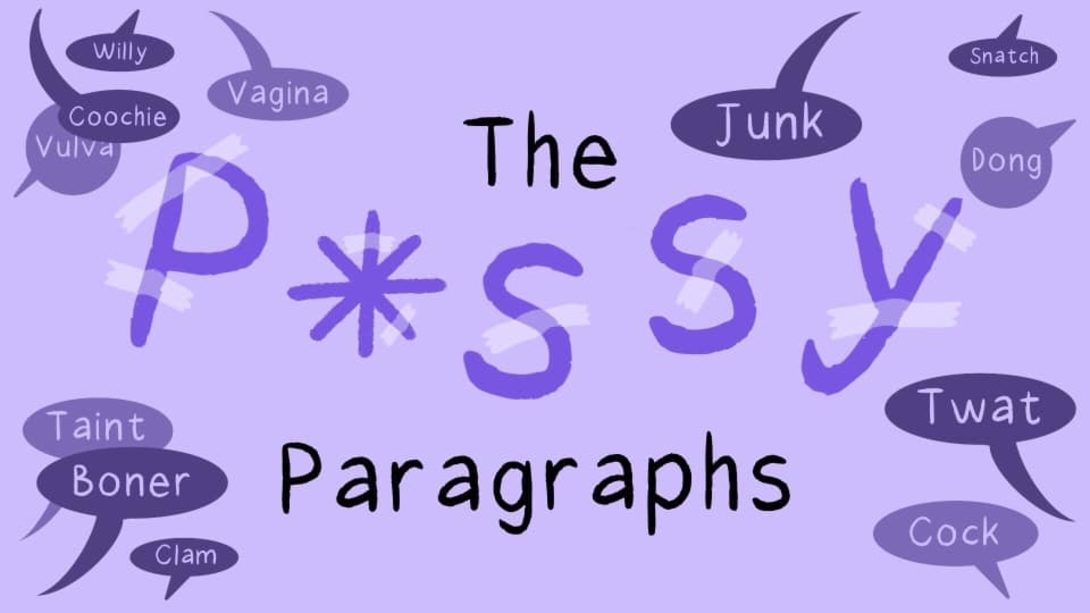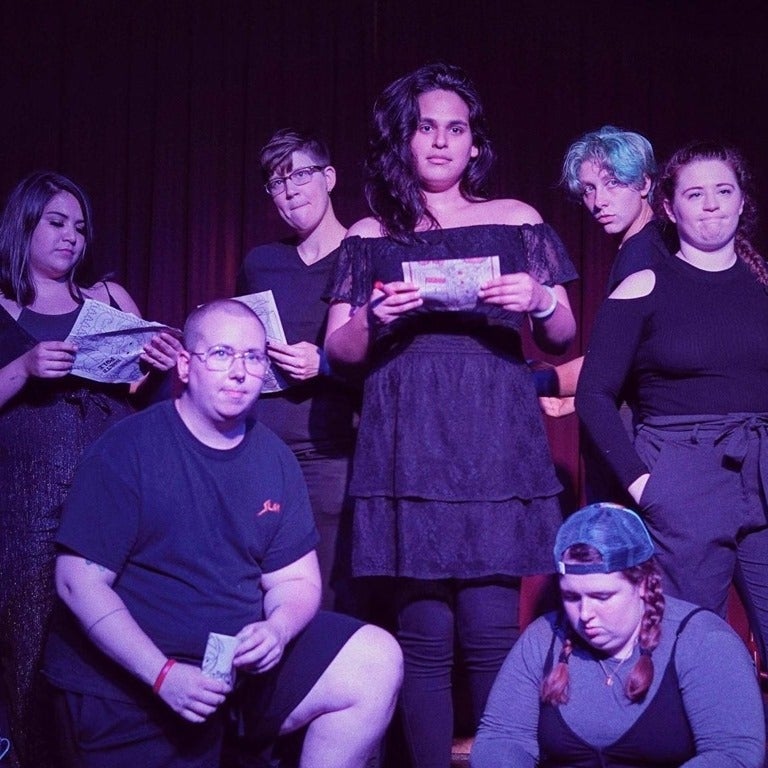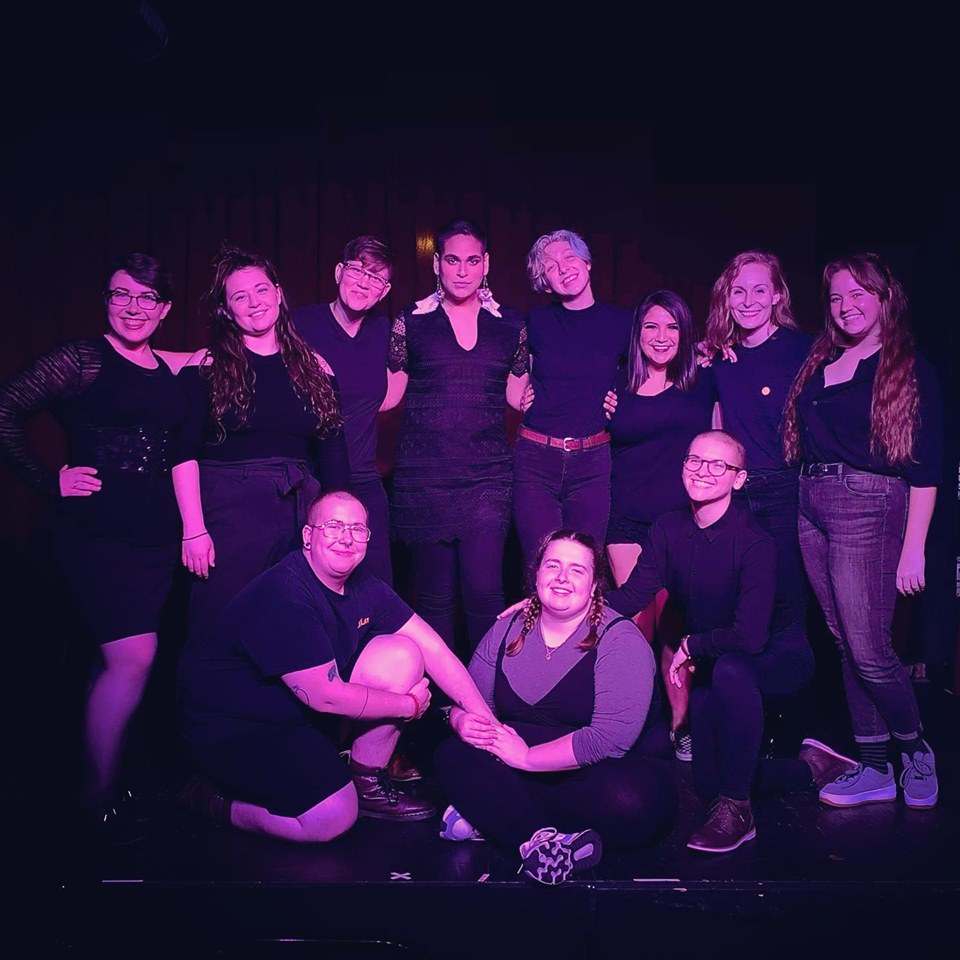The P*ssy Paragraphs

A trans-affirmative, comedic riff of the classic vagina play from the 90s
a new favorite Heading link

Before I begin this review of The P*ssy Paragraphs, I would like to emphasize that I have not seen The Vagina Monologues before, which The P*ssy Paragraphs was based on, but I have heard of it briefly thanks to my close theatre friends. I hadn’t even heard of The P*ssy Paragraphs until I was scrolling through Instagram and, between posts, there was an ad for the play. I was intrigued. My interest was piqued. I had to click on it and see. The sentence that really convinced me that I needed to see this play was “comedic riff of that one vagina play” and then I bought my ticket for October 18th at 8 PM.
If you have never seen The Vagina Monologues before, it’s not terribly necessary to see it. Essentially, a woman by the name of Eve Ensler interviewed hundreds of women from all backgrounds and walks of life to get their opinions on their bodies, with emphasis on their vaginas. This was first showcased in the mid-90s as a way for women to be able to accept themselves and their womanhood in a time when many people don’t usually talk openly, or even at all, about vaginas. As times have changed, opinions and feelings have also changed. The P*ssy Paragraphs, directed by Sam Mauceri, demonstrates this change.
The Show Heading link

Immediately, the show begins with various proclamations from the cast members about their vaginas. My personal favorite was the line “My vagina is a coin purse full of boba” along with “Vaginas go on and on, but where do they begin?” These lines were both humorous and genuine because the cast really felt this way towards their genitalia. I loved every second of it.
The proclamations had the audience going through the same feelings as the cast members. From roaring laughter to empathetic silence, we felt it along with the performers.
As the play moved along, each of the cast members were introduced in their own fun ways, with their own stories to share.
The first cast member to share their story was Morgan who opened with a powerpoint presentation. Her blunt awkwardness, which emerged due to some technical difficulties, made her an instant crowd favorite. I personally hate the word “quirky” so I will refrain from using it, but she did have an air of lightheartedness surrounding her despite mentioning heavy subjects.
After each of the cast members introduced themselves, they began to give monologues of varying lengths. There were two game breaks in between the monologues where members from the audience had gone up on the stand for an audience-to-cast interaction. These games included the classic sleepover game: f*ck/marry/kill, and a game based on making different objects from play-doh.
The Emotional Aspects Heading link
Personally, I had goosebumps because of the emotional rollercoaster this hour-long show had taken me on. It was so silent during Lucy’s monologue of her letter to her unborn child that you could have heard a pin drop in the audience as we leaned forward to grasp onto her every word. During Logan’s monologue, he explained that he showed up to the Women’s March Protest ready for an actual, hands-on, fight but was confronted with signs and small children who he knew would not fight. He was angry, and for some reason, I felt myself getting angry as well. Most notably, River shared the hardships of her life and what it was like to accept herself as she is.
Something that really stuck with me from this show was Lucy’s letter to her unborn child. She says two quotes that had remained in my head for the duration of the night. One of which was “People make up funny names for things they’re afraid of” in regards to talking about sex and genitalia. Another quote from this monologue specifically is “sex isn’t a compromise. It’s your choice what you want.”
These two lines really emphasize that the next generation needs to be better than the last. I think that is what we all hope for.
This show had all of the best aspects of an improv show, while still maintaining the baseline of a play. I wish I had more of a background in theatre so I could really use the correct terms to emphasize how wonderful it was, but alas, you’ll have to stick with my lackluster vocabulary. The P*ssy Paragraphs had audience participation, honesty, moments of breaking character, and, most importantly, it was able to take the audience through a complete range of emotions.
Overall Heading link

What this play excels in is showing the personal stories of all the cast members. Additionally, The P*ssy Paragraphs extends to a whole-body exploration as opposed to The Vagina Monologues which focused on the vagina. Where The Vagina Monologues focused on femininity, The P*ssy Paragraphs focuses on humanity and the experiences of those that identify as female or have a vagina, and their experiences with that.
There are subtle, but also blatant differences and similarities between the two plays. Overall, I felt as though The P*ssy Paragraphs was a more personal show as opposed to The Vagina Monologues, but that might have been because I was experiencing the former live and in person rather than watching it on YouTube.
Despite this, both plays tackle heavy topics that could be potentially triggering to certain audiences, while maintaining an overall lighthearted, comedic feel. I think The P*ssy Paragraphs does it better, though. The Vagina Monologues were great for the 90s – when it came out. But now we need something new. I can confidently say that something is most definitely The P*ssy Paragraphs. And a major plus is that it’s surely not as terf-y as The Vagina Monologues.
Regardless of your own personal views and beliefs, this show is one that should indubitably be on your list of plays to see. You absolutely must witness the holy glory of it for yourself. This hour-long play will completely transform your thought process on the human experience and everything related – as it did for me.
It unintentionally (or quite possibly it is intentional) makes you think about all the consequences of words that are seemingly harmless. Sometimes those words just enforce a terrible system that allows the necessity of labels. Labels are unnecessary if you do not feel comfortable aligning with them. Someone else’s private life is their business and we as humans must respect that.
I feel as though the overarching message of The P*ssy Paragraphs is to just be a good person and respect others. Or maybe there’s no deeper meaning at all and high school English classes just stuck with me longer than I had hoped for.
All jokes aside, this is a play that is, without a doubt, one to be recognized in the highest esteem and I can say that I am a more self-aware person after witnessing this lovely play and speaking with the director, Sam.
Many thanks to Sam for directing this wonderful play, and even though I was unable to speak with them, thanks to the cast as well for an excellent performance.